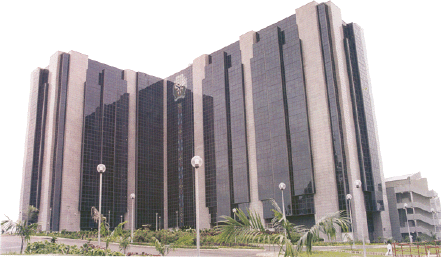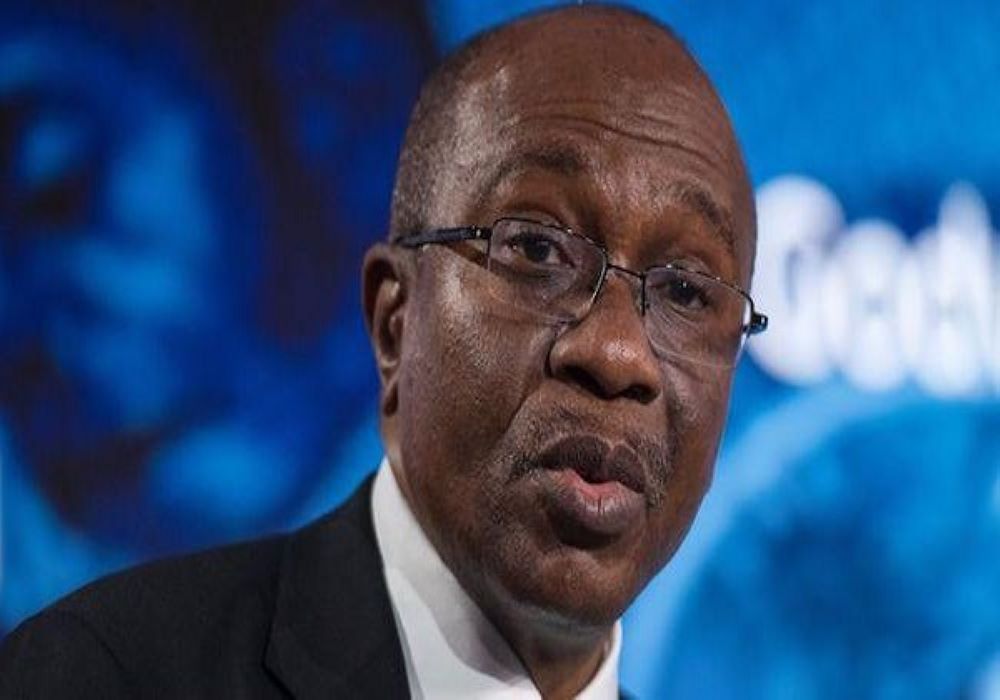Finance
Fitch: Nigerian banks performing well despite hurdles

Fitch Ratings says in a new special report that Nigerian banks are performing well despite the twin hurdles of tight monetary policy actions and new banking rules.”This is mostly supported by continuing robust economic growth. Nevertheless, we expect bank performance and growth to moderate over the next 18 months due to Central Bank of Nigeria actions aimed at protecting the economy and the banking system,” says Mahin Dissanayake, Director in Fitch’s EMEA Financial Institutions team.
The CBN’s stance also shifted towards protecting the consumer through its revised rules on banking charges introduced in 2013. All these moves, however, led to weaker profitability and stemmed credit growth in H114 – a trend that is likely to continue into 2015.
All Fitch-rated Nigerian banks were profitable in 2013 and 1H14 but saw performance slip. There were a few outliers and these were typically the smaller banks, which outperformed the sector.
Earnings pressure was exacerbated by high operating costs at most banks due to a higher AMCON levy and network expansion st rategies.
rategies.
Banks are now seeing some asset quality deterioration with rising absolute NPLs, reflecting fast loan growth since 2011. Most banks’ NPL ratios remain below the 5% prescribed by the CBN but Fitch views this as unsustainable in the long-run. Very high loan concentrations by borrower and sector expose banks, particularly the smaller banks, to significant event risk.
Banks are also seeing moderate liquidity pressure with rising loans/deposit ratios. In response, the banks’ large customer deposit bases are continuing to expand on strong GDP growth and increasing banking penetration. The focus is on raising low-cost retail deposits to strengthen funding profiles, particularly following the cash reserve requirement hikes on public sector deposits. Several banks have successfully tapped the euro bond market to raise longer-term USD funding to meet the strong demand for USD loans from major corporates, although it exposes the banks to FX-related risks.
We expect bank capitalisation to come under pressure due to Basel II implementation in 2014 and proposed new regulatory capital computation rules. As a result, Fitch believes regulatory total capital adequacy ratios could fall between 200bps-300bps this year. Most Fitch-rated banks report Fitch core capital (FCC) and Basel I regulatory capital ratios in excess of 20% which is considered a comfortable level given the risks inherent in Nigeria. A sharp decline in capitalisation could be negative for bank ratings.
Sovereign support drives most Nigerian banks’ Issuer Default Ratings. Of the 9 Nigerian banks rated by Fitch on the international scale, six have Long-Term IDRs driven by potential state support. They are First Bank of Nigeria, United Bank for Africa, Diamond Bank, Union Bank, Fidelity Bank and First City Monument Bank. While the willingness of the Nigerian authorities to support domestic banks continues to be high – as demonstrated during and after the 2009 banking crisis – its ability is limited by the sovereign rating of ‘BB-‘.
Three banks, Zenith Bank, Guaranty Trust bank and Access Bank have IDRs driven by their intrinsic strengths as defined by the Viability Rating (VR). All Nigerian banks have VRs in the ‘b’ range, mainly due to the high influence of the operating environment on their ratings. We believe the domestic operating environment can be challenging and sometimes volatile, therefore effectively capping the Nigerian banks’ VRs. Other factors constraining VRs include weak governance structures, developing company profiles (particularly for the smaller banks) and recovering financial metrics. Zenith Bank and Guaranty Trust Bank have the highest VRs of ‘b+’ due to their ability to perform well through the cycle.
Banking
CBN Denies Currency Devaluation

The Central Bank of Nigeria (CBN) has refuted claims of devaluing the.
Earlier reports suggested that the CBN had devalued the Naira, lowering its exchange rate from N631 to the dollar, compared to the previous day’s rate of N461.60 at the Importers and Exporters (I&E) window.
However, the Central Bank of Nigeria (CBN) released a statement on Thursday through its Acting Head of Corporate Communications, Dr. Isa Abdulmumin, categorizing the report as false information.
In the statement titled ‘CBN Has Not Devalued The Naira’, he said the attention of the apex bank was drawn to the news report by an Abuja based newspaper edition of June 1, 2023, titled “CB Devalues Naira To 630/51”.
However, the CBN stated categorically that the news report was replete with outright FALSEHOODS and destabilizing innuendos, ‘reflecting potentially willful ignorance of the said medium as to the workings of the Nigerian Foreign Exchange Market.’
“For the avoidance of doubt, the exchange rate at the Investors’ & Exporters (I&E) window traded this morning (June 1, 2023) at N465/USS1 and has been stable around this rate for a while.
“The public is hereby advised to ignore the news report by Daily Trust in its entirety, as it is speculative and calculated at causing panic in the market,” the CBN spokesman added.
He, therefore, advised media practitioners to verify their facts from the Central Bank of Nigeria before publishing in order not to misinform the public.
Banking
BREAKING: CBN Increases Interest Rate By 0.5%

The interest rate in Nigeria has been raised to 18.5 percent, up by 0.5 percent, from 18 percent where it was pegged in March 2023.
The Central Banks of Nigeria’s (CBN) Monetary Policy Committee (MPC) resolved to this effect at its third meeting of 2023 in Abuja, on Wednesday.
Governor, CBN, Godwin Emefiele, made the disclosure in the communiqué of the MPC’s meeting, thereafter.
While engaging the media at the end of the two-day meeting, Emefiele, said the committee voted to keep the asymmetric corridor at +100 and -700 basis points around the MPR.
In the view of the MPC, rising inflation rate is traceable to the high energy cost and challenges around the supply chain, among others, which lie outside the corridors of the CBN.
Emefiele said, “The current trend in price development would continue to be monitored by the bank with greater collaboration with fiscal authority to address the drivers of inflation.”
Biztellers reports that the CBN had effected six consecutive interest rate increases, which has seen the rate move from 11.5 percent in March 2022 to 18.5 percent in May 2023.
Finance
Dangers Lurk As Nigerians Resort To Refurbished Gas Cylinders

In Nigeria, people have been forced to come up with creative solutions to cope with the effects of inflation and the economic crisis.
These improvised strategies have not only helped individuals save money, but also enabled them to stay afloat during difficult times.
In a concerning development, the recent trend of boycotting the high cost of cooking gas cylinders in Nigeria may pose a greater risk to lives than it does in terms of saving money.
Economy&Lifestyle investigations have revealed that the soaring prices of gas cylinders have reached a point where it has become increasingly challenging for average households to afford them, let alone refill them with gas.
The situation is further exacerbated by the fact that the pump price of kerosene, which would typically serve as an alternative, has become prohibitively expensive.
Upon investigation, it was found that the prices of gas cylinders vary depending on their sizes. A 3kg gas cylinder is priced at N14,000, while a 5kg cylinder costs N16,000. The larger cylinders are even more costly, with a 6kg cylinder priced at N17,000 and a 12.5kg cylinder costing N19,000.
Additionally, the expense continues when it comes to filling these cylinders with cooking gas, as it costs N2,600 for a 3kg cylinder, N5,200 for a 6kg cylinder, N8,950 for a 10.5kg cylinder, and N10,650 for a 12.5kg cylinder.
Consequently, an average household that needs to replace a worn-out 5kg cylinder would have to come up with N20,250 to purchase a new cylinder and fill it with gas, which can be a difficult feat to achieve.
As a result, many people have resorted to refurbishing their old cylinders and trying to use them as best as they can. However, this approach poses a significant danger.
Mrs. Rukayat Adesoji, a trader, shared her experience regarding her gas cylinder, which had become rusted and could no longer stand upright since last month. Due to the exorbitant prices of purchasing new cylinders, she resorted to seeking the assistance of a welder.
The welder patched the legs of the cylinder, repainted it, and ever since then, she has been using the refurbished cylinder for her cooking needs.
She said ““My gas cylinder which was 6kg got rusted and no longer stands erect since last month. When I asked for the price, I was told it was N17, 500. I was discussing it with a friend who advised me to take it to a welder to paint it and construct a new stand. I heeded to her advice and at the end spent just N3, 000 to turn my cooking gas to a brand new.”
Apart from refurbishing cylinders, some people don’t even know when their cylinders will expire. Mrs. Mercy Opara, a hair stylist, falls in that category as she explained: “I am taking my gas cylinder to the welder to spray it for me. It just cost N1, 500.
“The cost of buying a new cylinder is high. I have been using my cylinder for over 7 years and I don’t even know the expiry date. I just pray God blesses me so that I can buy a new one. But this one I am managing will look neat after spraying it for another two years.”
Mr. Adekanbi Joseph, a wielder, said he paints cylinder and “To paint and rebuild a cylinder stand, I charge N4, 500. Many people come here to paint as a new cylinder is now very expensive to get.”
Highlighting the potential dangers of using refurbished cylinders, Mr. Benjamin Hope, the Chief Executive Officer of FKT Cooking gas and general goods, emphasized the risks involved.
He stated that even a brand new cylinder can pose a risk of explosion if the locks are not properly secured after use or if the cylinder filled with gas is moved from one location to another.
He said “A brand new cylinder can explode if the locks are not well keyed after using and if the cylinder filled with gas was moved from one place.
“There are many reasons for the high cost of gas cylinders in Nigeria. One is the cost of importation due to the exchange rate. Another is the increased migration from the use of kerosene to cooking gas which has necessitated increased demand for gas cylinders. You know that in such a case there will be increased importation of cylinders.”he added

















